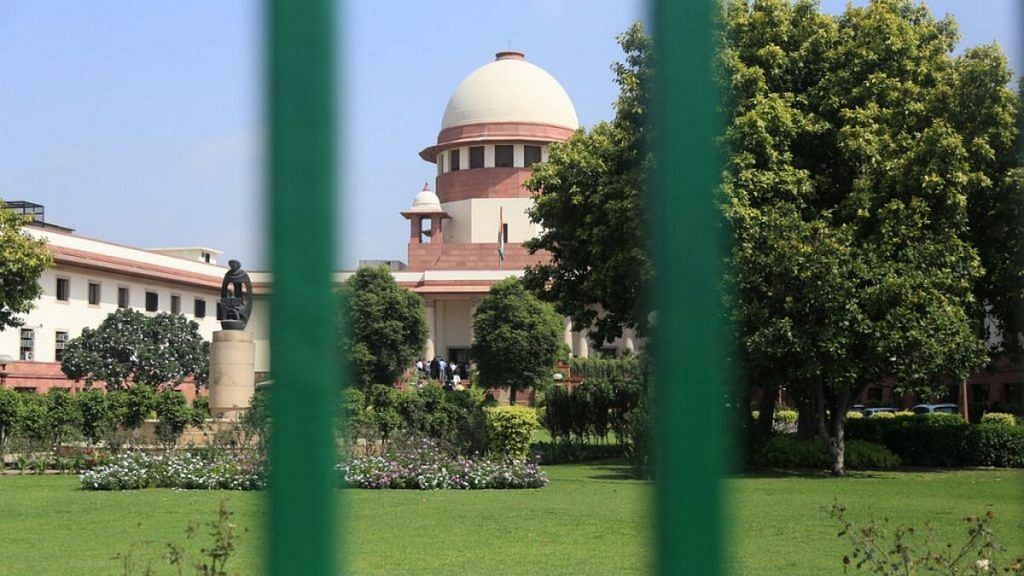Thank you dear subscribers, we are overwhelmed with your response.
Your Turn is a unique section from ThePrint featuring points of view from its subscribers. If you are a subscriber, have a point of view, please send it to us. If not, do subscribe here: https://theprint.in/
It all started again by the Vice President. Mr Jagdeep Dhankhar had tried to instigate the parliamentarians by saying that NJAC bill passed by the Parliament has been ‘undone by the Supreme Court’, calling it ‘a severe compromise of parliamentary sovereignty and disregard of the mandate of the people’ and that ‘such a momentous issue, so vital to democratic fabric, there has been no focus in Parliament, now for over seven years… This House, in concert with the Lok Sabha, being custodian of the ordainment of the people, is duty bound to address the issue, and I am sure it will do so.’ This was done in December 2022 by the newly elected Vice President on a BJP ticket. As a Governor in West Bengal, he had created many issues out of non-issues. I have my own personal view that he was posted there to create all disruptions in the functioning of a legitimately elected democratic government, although I have severe reservations on how Ms Banerjee’s government functions there.
The ignition took nearly two months for Mr Kiren Rijiju, the appointed Law Minister to make a fresh start a few days back on this planned onslaught on the independence of judiciary and the fountainhead of justice, the Supreme Court of India. Taking a cue from the retired judge of the Delhi High Court Mr R S Sodhi’s remarks, “The Supreme Court has hijacked the constitution. It said, we will appoint the judges and that the government will have no role in it.”, Mr Rijiju remarked it as a ‘sane’ and that many endorse this view is a short of ‘hijacking’ of Mr Sodhi’s remark with Mr Sodhi admonishing that the minister ‘must not shoot from my shoulder’. Now, Mr Rijiju! this is equally a ‘sane’ remark from the retired judge. And Mr Rijiju is a BJP MP.
And both of them are vociferous against the ‘collegium’ system that recommends to the government the names of judges to be appointed. It is not that ‘the collegium appoints the judges, the government has no role in it’, as sarcastically remarked by the retired judge Mr R S Sodhi. The government appoints the judges on the basis of collegium recommendation. By accepting the recommendations of the collegium, the government neither ‘compromise the parliamentary sovereignty’ and nor surrenders ‘the mandate of the people’, as Vice President would want us to believe.
If Mr Dhankhar and Mr Rijiju carry some vainglorious idea of ‘mandate of the people’, as an ordinary citizen of the country, let me remind them of some basics of mandate in a democracy which they might have forgotten. A mandate is what the representative gets as an outcome of an election process. The mandate is just a numerical majority and not a universal unanimity. Let me put it this way, in an electorate of say 100, one gets elected on getting 51 votes. But what happens to the mandate of 49? In an inclusive governance, the mandate of the 49 is duly respected. But in a majoritarian governance that we experience now, it is a misnomer.
But in matters of truth and justice, the outcome is and ought not to be driven my numerical majority. If ‘The Sun rises in the East’ is put to test by the mandate of the people and a majority says it is wrong; is it to be accepted so? When the CJI says ‘basic structure’ of the constitution, he refers to what R N Tagore spoke as ‘the clear stream of reason’ and that is the ‘North Star’ guiding for direction. When an attempt to waylay a well-founded reason is made, it is the duty of the conscience-keeper to make everybody aware of its consequences. It is our blessings that the luminaries in the constituent assembly had made available this unique ‘basic’ of the constitution which we have come to know as judicial review.
As students of Political Science, we were taught about the trinity of legislature, executive and judiciary; their exclusive domains and the checks and balances they ensure for good governance. But in a democracy, we see that it is the executive who legislates and it is the legislature which makes the executive. Judiciary alone relatively maintains its independence. It has brought sanity to the functioning even in some irate democracies. Let it remain so. A transparent altruist governance should not be afraid of the judiciary.
And, in case, a judge behaves in a way that is not acceptable; I understand that we have enough system in place to impeach the judge. A democratically elected government can do it. Then, why worry?
Also read: SubscriberWrites: ‘Democracy 2.0’ — A new definition of democracy is needed in changing times
These pieces are being published as they have been received – they have not been edited/fact-checked by ThePrint.
